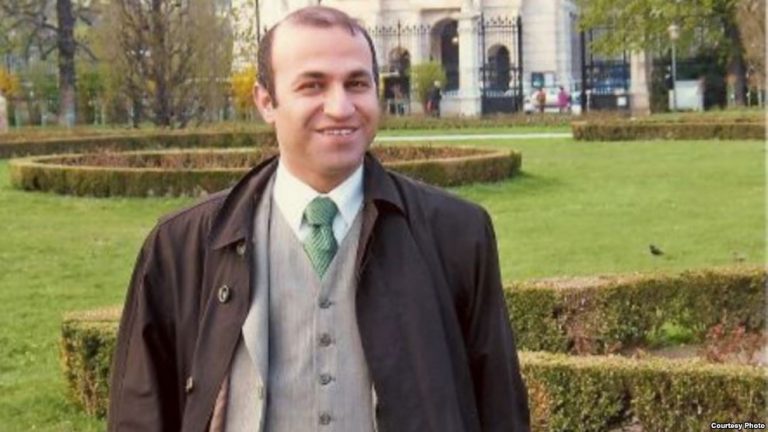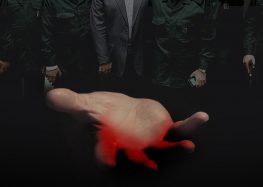Tehran Prosecutor’s Office Ignores Imprisoned Iranian-Austrian’s Request for Back Operation

The Tehran prosecutor’s office has ignored a request by imprisoned Iranian-Austrian dual national Kamran Ghaderi for an urgent back operation, his wife told the Center for Human Rights in Iran (CHRI).
“Kamran has been suffering from a herniated spinal disk for a long time and now constant neck pain has been added to his problems as well,” said Harika Ghaderi, who lives in Vienna, on December 15, 2017.
“A specialist doctor outside the prison checked him months ago and recommended undergoing surgery but Kamran decided not to do it because he was worried that after the operation he would have to go straight back to prison,” she said.
“Now his condition has gotten steadily worse and he can’t walk or stand on his feet for more than a couple of minutes,” she added. “A request was filed a month ago with the prosecutor’s office to go ahead with the surgery but so far there has been no response.”
During their last phone conversation, Ghaderi told his wife to tell his relatives in Tehran not to come to Evin Prison for their weekly visit because he is unable to walk, Harika Ghaderi told CHRI.
The 54-year-old businessman is about to enter the third of his 10-year prison sentence for the charge of “conducting espionage for enemy states.” Khaderi confessed to the charge after his interrogators threatened him with arresting his wife.
He is awaiting a decision from the Supreme Court on his final appeal request.
The CEO of Avanoc, an Austrian IT management and consulting company, Ghaderi was arrested on January 2, 2016, in Tehran by agents of the Intelligence Ministry.
A resident of Vienna with his wife and three children, Ghaderi had traveled to Iran on many occasions for work and business seminars, including as a member of the Austrian delegation to Tehran led by then-President Heinz Fischer in October 2015.
“In the past two years I have written numerous letters to Iranian officials but I have received no response,” Harika Ghaderi told CHRI.
She continued: “I don’t know what else to do. My only request is for his freedom. He’s only a businessman. He has done nothing against the Iranian government or anyone else. He has not seen his kids for two years. His health is getting worse every day. It’s enough. Let him go.”
The Islamic Revolutionary Guard Corps (IRGC) has arrested at least 30 dual nationals since the signing of the Iranian nuclear deal in July 2015, according to a Reuters investigation. At least 12 dual nationals, foreign nationals, and foreign permanent residents are currently imprisoned in Iran on national security charges.
*This article was revised on December 21, 2017, to reflect that the request was ignored by the Tehran prosecutor’s office, not the Tehran prosecutor.






